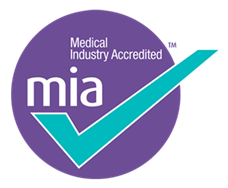
Injury Advice: What To Do After Dealing With A Head Injury
Head injuries are one of the most common forms of injuries in the UK, with approximately 1.4 million patients being admitted to A&E with a head injury each year. There are many different causes of head injuries, including knocks to the head, car accidents or incidents in the workplace.
While ranging in severity, head injuries can have a profound impact on the health and well-being of the impacted individual - which means it is crucial that you are able to respond quickly to this kind of injury.
This article will provide you with useful head injury advice.

What To Do After A Head Injury.
Know what to look for.There are many different kinds of head injuries, including concussions, cerebral compression and skull fractures, though many of the symptoms tend to overlap.
Common symptoms include:
- Headaches
- Blurred vision
- Dizziness
- Memory loss/confusion
- Irritability/changes in behaviour
- Bruising/swelling
- Nausea/vomiting
- Balance issues
Knowing the signs or indicators of an injury can prove useful in treating the condition quickly and effectively - though it's worth seeking medical advice after any kind of accident.
Seek medical advice.
Head injuries are the most common cause of death and disability in people aged 1-40 in the UK, according to data from NIHR. Therefore, if you are experiencing any of the symptoms outlined above, you should see a medical professional for injury advice. They will put together a treatment plan that facilitates a speedy recovery, ensuring the injury has a minimal impact on your life moving forward.
You should also ensure that you are diligent when following any head injury advice given to you by a doctor or healthcare professional.
Seek out personal injury advice.
Taking legal action by getting personal injury advice can help you to recover financially from the incident. However, to make a personal injury claim in the UK, the following circumstances must apply for an individual to make a claim:
- The injury occurred within the last three years (per the Limitation Act 1980).
- The claimant was not at fault (for example, the injury could be caused by another party's negligence).
- The injury brought forth both physical and financial consequences (for example, a loss of income due to having to take time off work or costs spent on treatment).
If you are considering making a personal injury claim, you must do your research beforehand so that you understand the legal process and can protect your best interests. You should also hire a qualified, experienced solicitor who has worked on similar cases before.
You should also gather evidence related to your claim to give you the best chances of success. This could include medical reports detailing the extent of your injuries and the impact they've had on your life. The more evidence you have, the easier it will be for your solicitor to fight your case.
While your main priority when dealing with a head injury should always be recovery, taking steps to receive justice can also help you to move forward.
Full topic list*
- Antenatal Appointment Cards
- Bereavement - A helpful guide for the bereaved
- General Patient Appointment Cards
- Individualised Patient Appointment Cards
- Injury Advice Information Guide
- Making a Will and Funeral Planning
- Mobility Advice and Support
- Older Persons Community Care Guide
- Parenthood And Pregnancy Booklets
- Private Healthcare Advice and Support
- Regaining Your Independence
- Relationship Breakdown, support and advice for separating couples
- Sight and Hearing
- Work Related Injuries, Diseases and Employment Issues
- Order Free of Charge Literature
* Not all publications are available in all regions




